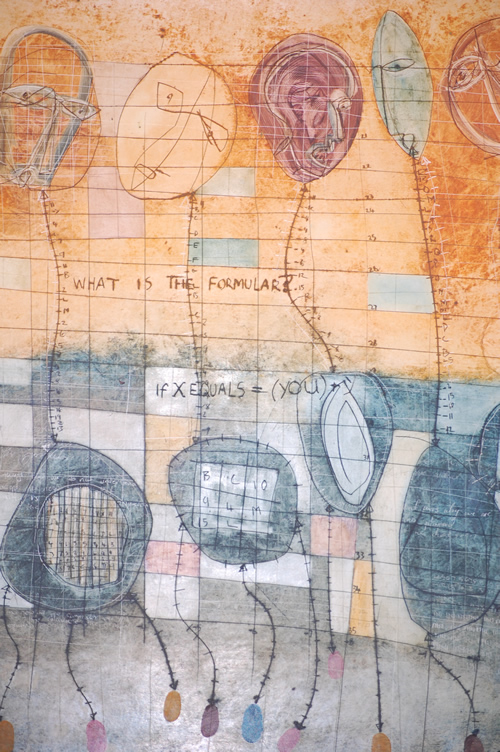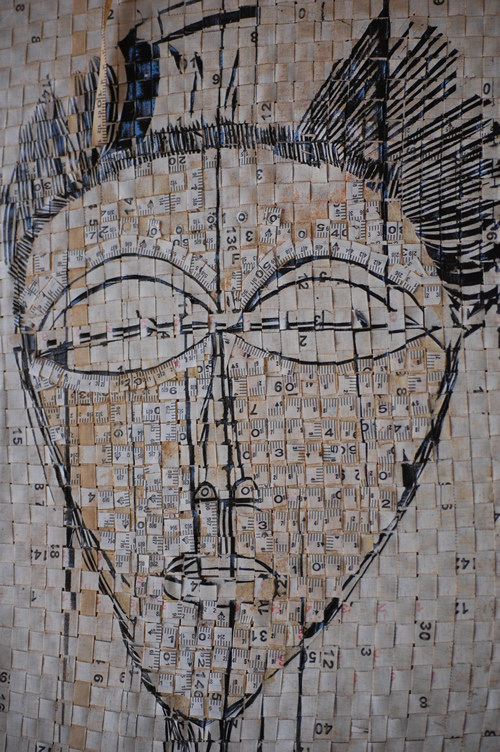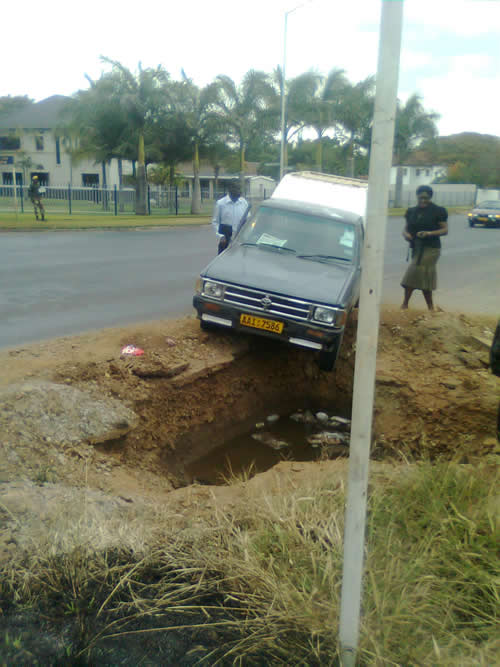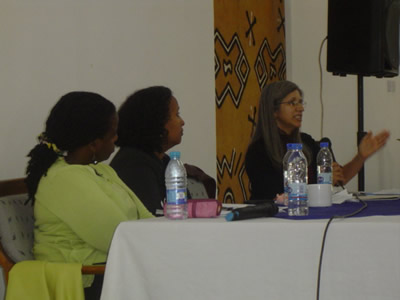Archive for 2012
Econet Wireless founder honored by an American College
Tuesday, June 5th, 2012 by Lenard KamwendoMorehouse College, one of the oldest American colleges, has awarded an honorary doctorate to Zimbabwe’s richest man, Econet Wireless Holdings founder, Strive Masiyiwa in recognition for his philanthropic and humanitarian work across the African continent. Masiyiwa is ranked 34 on the Forbes’ list of Africa’s 40 Richest. The Econet Wireless mobile telecommunications company brand has spread from Zimbabwe to conquer Africa and has also moved to the UK and New Zealand. Apart from running the company Strive Masiyiwa is involved in the Capernaum Trust, a charity organization that sponsors children from disadvantaged families with scholarships.
The measure of art
Tuesday, June 5th, 2012 by Bev ClarkCitizen reporting in Zimbabwe
Monday, June 4th, 2012 by Bev ClarkFrom Lloyd in Harare:
Note that I sent you a FIX THIS PLEASE photo about an open ditch with water in it at the corner of Sam Nujoma (Second Street) and Downie Avenue in Belgravia, Harare. I highlighted in the email that if not closed there is a danger of vehicles falling into the ditch since its not covered or hedged off to vehicles.
On 30 May 2012 a vehicle nearly fell into the ditch when avoiding a commuter omnibus that cut it off. Find attached a photo of the vehicle. If authorities had done something this wouldn’t have happened.
May authorities do something about this please.
Zimbabweans reflections on Africa Day
Monday, June 4th, 2012 by Bev ClarkWe asked the Kubatana community to share their reflections on what Africa Day means to them – here is some of what we got …
Africa day symbolises unity of African countries, which was initiated by great leaders such as Nyerere and Nkurumah although it is now characterised by conflicts, war and despotic leaders. – Clive
It continues to sicken thinking minds that new civil conflicts are prevalent. The mere fact that only four African countries consider Africa day, as a public holiday is indicative of strained African relations! Gross violation of human rights, poor governance, corruption and lack of political will all continue to ridicule the maxim of Africa day. Africa day that never was! – Raymond
What else would it mean? It’s just another passing day for Africans. Despite numerous pledges and noises made by African states in the African Union, no solidarity is shown when it comes to the suffering of fellow states. There is pretence of Brotherhood when in actual fact it’s, each man for himself and God shine on us all! – Shephard
African Day is a great day for each and every African, and those who wish the continent the greatest of success! This day should always open our eyes and give us the joy of fighting for what we are, who we are and what we believe in. Together as Africans we fought the out-side common enemy – colonialism but now we are fighting the enemy within – poverty, racism, xenophobia, ethnicity, civil wars, authoritarian regimes, human rights abuses, etc… It has been more than a decade since OAU, now African Union was formed but the enemy within us is still strong! The enemy within has divided Africans; it has brought in another strong enemy – Neo-colonialism. It has widened the economic gaps between the poor and the rich. My fellow Africans, is this what we fought for in the name of liberation? How liberated are we as Africans? I believe this day should open up our minds and eyes, to reflect on these issues as Africans. What are we celebrating? Are we celebrating the formation of OAU as an organisation or the purpose why it was formed? Either way, what is important is for us to remember that we need to develop strategies of defeating the enemy within. Let us help the OAU/AU in defeating the common enemy. – Twambi
Though we speak different languages and live in different countries, the big issue is unity. Black or white we should share. That’s Africa day for to me. – Kenneth
It was supposed to mean a time to reflect on peace, food security and technological advancement on the continent. Unfortunately, we are always chewing our humble pie where conflicts are the order of the day, and corruption is at centre stage. Basically the meaning is getting to be negative for us the youths. – Francis
Who should be the leaders?
Monday, June 4th, 2012 by Elizabeth NyamudaAn open gender forum organized by UN Women last week, hosted Shamim Meer’s presentation on her research paper titled, ‘Struggles for Gender Equality: Reflections on the place of men and men’s organisation’. The presentation comes at a time where men are organizing themselves to support gender equality. Notably in Zimbabwe is Padare/Enkundleni and Varume Svinurayi/Vhukani Madoda. From the names these two organisations have chosen to use, it reflects much about their agenda in the women rights equality struggle. Shamim paper’s sought to really bring out the agendas of some of these men’s organisations in the struggle for gender equality and explore where men fit in women rights struggles.
Her major concern is that these formal structures being created by men give men a leading role in the struggle for gender equality of which that should not be the scenario – women should lead themselves. She gives a warning to say, “They are operating in a field where women are seen as subordinates and by making men key actors then you could be reinforcing the subordination.” Thus she argues for the separation of men from the women’s struggle. She also mentioned that the depoliticised understandings of gender as ‘men and women’ went further to strain donor relations with existing women’s organisations. As most women organisations are now being asked, ‘If you are working on gender, where are the men in your organisation?’
In her paper, Meers refers to this new idea of donors funding men as the ‘silver bullet’. In the paper she said, “Working with men from the donor’s point of view, could reduce costs to the health care system, and thus meet efficiency goals prioritized by development organisations. This seemed to be the new silver bullet, which would give ‘more bang for the buck!” To Meer the power that men have over women and the possibility that it may not be in men’s gender interests to transform gender relations or achieve greater equality were ignored. Thus clearly spelling out her debate.
It is from this background that she strongly puts out her belief that women need to take back the lead in the struggle. To support this statement she said, “… the oppressed in any system are best placed to lead their own struggle because they know the issues, their active leading challenges the notions on their lack of status and lack of ability.” Support for men in the struggle for gender equality is greatly appreciated but as Meer insisted it should not interfere with who gets to lead the struggle.













